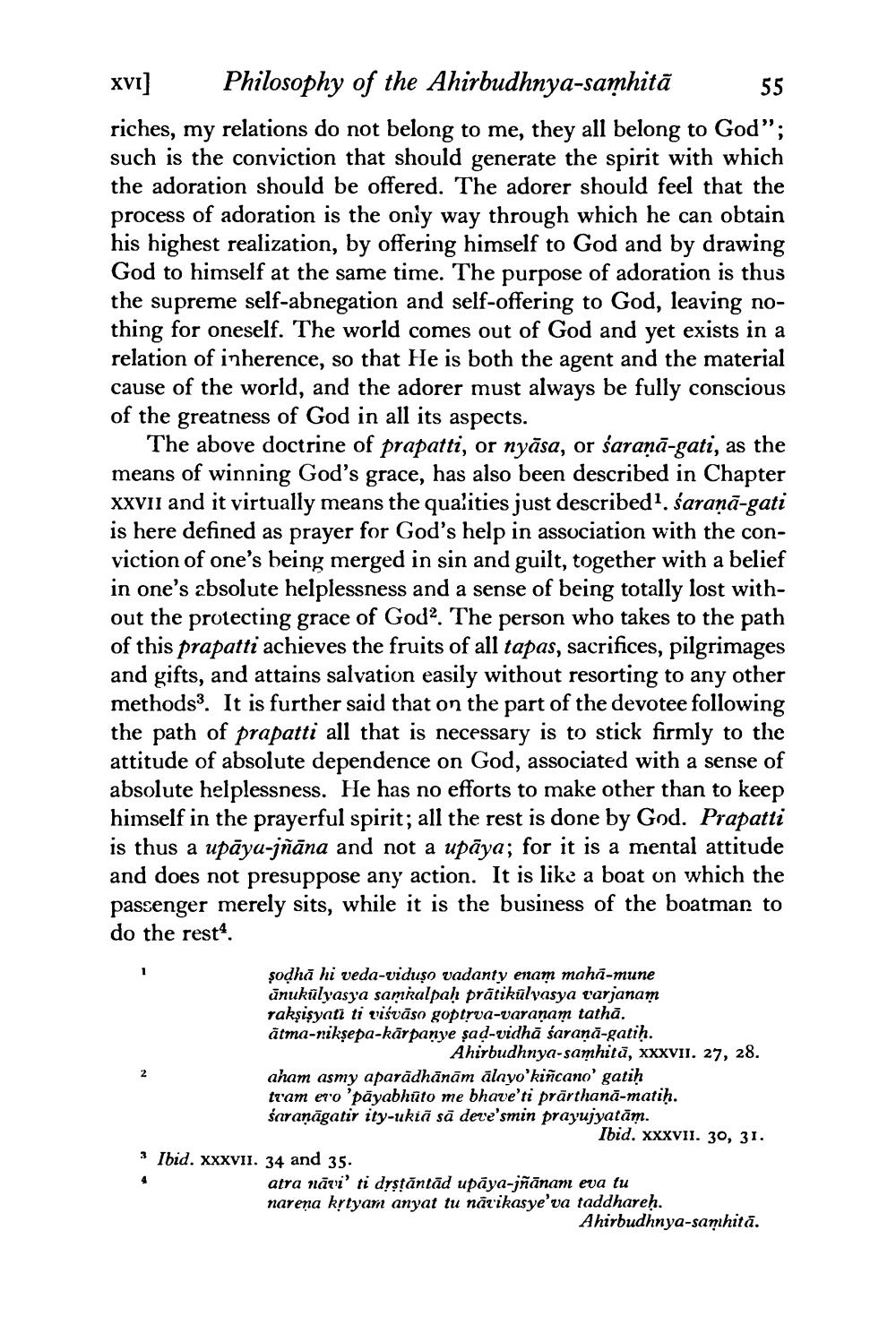________________
XVI] Philosophy of the Ahirbudhnya-samhitā 55 riches, my relations do not belong to me, they all belong to God”; such is the conviction that should generate the spirit with which the adoration should be offered. The adorer should feel that the process of adoration is the only way through which he can obtain his highest realization, by offering himself to God and by drawing God to himself at the same time. The purpose of adoration is thus the supreme self-abnegation and self-offering to God, leaving nothing for oneself. The world comes out of God and yet exists in a relation of inherence, so that He is both the agent and the material cause of the world, and the adorer must always be fully conscious of the greatness of God in all its aspects.
The above doctrine of prapatti, or nyāsa, or śaraņā-gati, as the means of winning God's grace, has also been described in Chapter XXVII and it virtually means the qualities just described 1. saraņā-gati is here defined as prayer for God's help in association with the conviction of one's being merged in sin and guilt, together with a belief in one's absolute helplessness and a sense of being totally lost without the protecting grace of God?. The person who takes to the path of this prapatti achieves the fruits of all tapas, sacrifices, pilgrimages and gifts, and attains salvation easily without resorting to any other methods. It is further said that on the part of the devotee following the path of prapatti all that is necessary is to stick firmly to the attitude of absolute dependence on God, associated with a sense of absolute helplessness. He has no efforts to make other than to keep himself in the prayerful spirit; all the rest is done by God. Prapatti is thus a upāya-jñāna and not a upāya; for it is a mental attitude and does not presuppose any action. It is like a boat on which the passenger merely sits, while it is the business of the boatman to do the rest.
2
sodhā hi veda-viduso vadanty enam mahā-mune ūnukulyasya samhalpah prātikülvasya varjanam raksisyati ti tiśvāso goptrva-varanam tathā. ātma-nikṣepa-kārpanye şad-vidhā saranā-gatiḥ.
Ahirbudhnya-samhitū, XXXVII. 27, 28. aham asmy aparādhānām ālayo'kiñcano' gatih tram ero 'pāyabhūto me bhave'ti prarthana-matih. śaranāgatir ity-ukiă să deve'smin prayujyatām.
Ibid. XXXVII. 30, 31. 3 Ibid. XXXVII. 34 and 35.
atra nāvi' ti drstāntād upāya-jñānam eva tu narena krtyam anyat tu nārikasye'va taddhareh.
Ahirbudhnya-samhitā.




